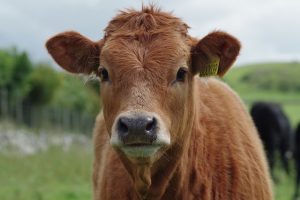NewsDesk @infectiousdiseasenews
Alberta Minister of Agriculture, Forestry and Rural Economic Development, Nate Horner issued the following statement on a positive case of atypical BSE in Alberta:

“Recently, an older cow in Alberta tested positive for atypical bovine spongiform encephalopathy (BSE). Atypical BSE presents no risk to human health, is not transmissible, and this case is not expected to have market impacts.
“The quick discovery of this atypical case proves how effective the Canada and Alberta BSE Surveillance Program is and how dedicated our producers are to eliminating BSE in Canada’s cattle herd.
“Atypical BSE spontaneously happens at a rate of about one in one million cattle regardless of how well a producer takes care of their herd. It has been reported six times in the U.S., most recently in 2018, as well as a few other countries.
“The Canadian Food Inspection Agency (CFIA) is leading the response and the Alberta government is providing support where possible with help from industry, producers and veterinary professionals.
“On Dec. 20, Alberta government and CFIA officials will meet with stakeholders from across the province’s cattle industry to answer questions and reassure them that all levels of government are working together on this case.
“The detection of this atypical case is Canada’s first case of BSE in more than six years, which we owe to our cattle producers’ vigilance and the success of surveillance and control measures we’ve implemented across the country over the past 20 years.
“We appreciate the ongoing support of all stakeholders as we continue to work together to resolve this incident.”
Mad Cow disease confirmed in Alberta cow, 1st case in Canada since 2011
BSE is not contagious and exists in two types – classical and atypical. Classical BSE is the form that occurred primarily in the United Kingdom, beginning in the late 1980’s, and it has been linked to variant Creutzfeldt-Jakob disease (vCJD) in people. The primary source of infection for classical BSE is feed contaminated with the infectious prion agent, such as meat-and-bone meal containing protein derived from rendered infected cattle.
Atypical BSE is different, and it generally occurs in older cattle, usually 8 years of age or greater. It seems to arise rarely and spontaneously in all cattle populations.
BSE is a progressive neurological disease of cattle caused by prions, which are infectious agents made up of protein material. The prion proteins affect the brain structure of infected animals, causing the animal to lose motor skills and eventually causing death. Clinical signs include behavioral changes, coordination problems, weight loss and decreased milk production. Once clinical signs appear, the animal’s condition deteriorates until it either dies or is euthanized.
Canada COVID-19: CMA calls for lockdowns in Alberta and Saskatchewan
Canada: Alberta syphilis cases highest in 73 years
Baylisascaris, Albendazole and a great story from Alberta, Canada


3 thoughts on “Alberta: 1st case of BSE reported in Canada in 6 years”